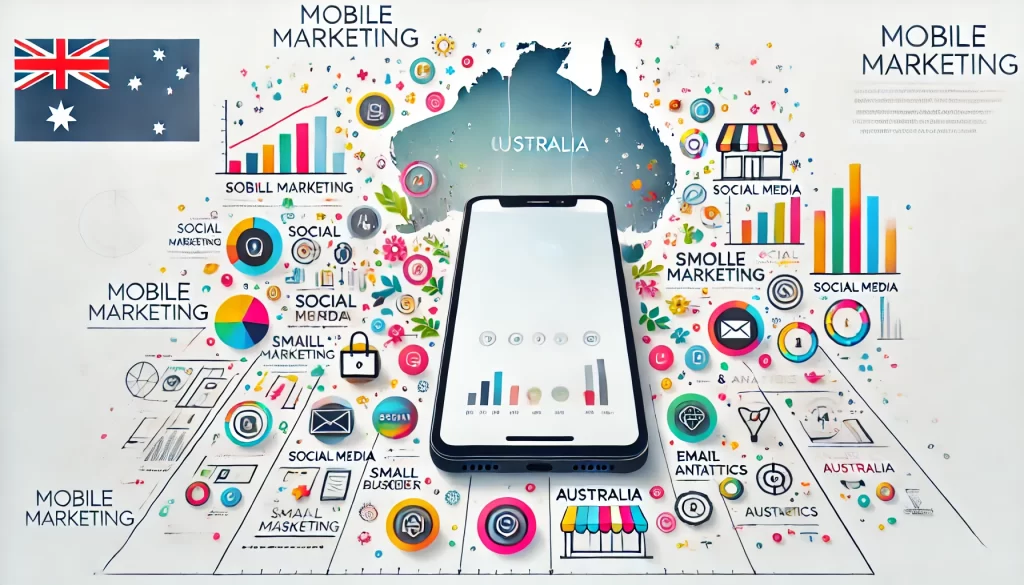In the current climate, advertising spending has proven to be vital in Australia’s economic recovery. A Deloitte report titled “Advertising Pays” highlights the industry’s staggering contribution of AU$53 billion to the GDP, while employing over 153,000 professionals. The investments in advertising reached a remarkable AU$18 billion in 2022, outpacing many global growth rates.
Interestingly, in 2022, the digital advertising industry in Australia alone was projected to spend a hefty AU$13.68 billion. This surge in spending reflects digital advertising’s rapidly growing popularity, potentially eclipsing traditional advertising methods. In 2021, Australian advertising expenditures topped AU$17.3 billion, with a significant AU$10 million allocated to internet advertising.
But while the Australian digital advertising industry is a billion-dollar behemoth, diving into this space doesn’t mean you need to spend a fortune to be effective. The key isn’t in the amount you spend, but in how you strategically allocate your budget, regardless of its size. Smaller, well-targeted campaigns can often yield impressive results, proving that effectiveness in digital advertising isn’t necessarily proportional to expenditure.
Cost-Effective Digital Advertising Platforms in Australia
Choosing the right digital advertising platforms can be like finding hidden gems – cost-effective yet delivering a great return on investment (ROI). Let’s take a look at some platforms where your dollars can stretch further.
Here’s a table comparing various digital advertising platforms, highlighting their pros and cons, and suggesting industries that might find them particularly applicable:
| Platform | Pros | Cons | Best for Industries |
| Wide audience, detailed targeting, cost-effective | High competition, algorithm changes | Retail, Real Estate, Entertainment | |
| Highly visual, great for engagement, influencer tie-ups | Younger demographic, requires high-quality visuals | Fashion, Beauty, Lifestyle, Food | |
| Professional audience, B2B targeting, high-quality leads | More expensive, less casual content | B2B services, Recruitment, Educational services | |
| Google Ads | High intent audience, scalable, measurable | Can be expensive, requires SEO knowledge | All industries, especially service-based |
| Email Marketing | Direct communication, high ROI, personalization | Time-consuming, needs a good database | E-commerce, B2B, Hospitality, Health services |
| TikTok | High engagement, creative content, younger audience | New platform, less established for ads | Entertainment, Fashion, Food, Tech gadgets |
10 Questions to Help You Choose the Right Advertising Platform
To guide you in this decision-making process, here are some key questions to consider. These will help you align your business goals with the capabilities of various platforms, ensuring you invest your advertising dollars wisely. By carefully considering these factors, you’ll be better equipped to select a platform that not only reaches your target audience effectively but also maximises your return on investment.
- Who is your target audience? Consider age, interests, profession, and online behaviour.
- What is your primary advertising goal? Are you aiming for brand awareness, lead generation, or direct sales?
- What is your budget? How much are you willing to spend, and what is your expected ROI?
- What type of content resonates with your audience? Visual, text-based, video, or interactive content?
- Where does your audience spend most of their time online? Which social media platforms or online forums do they frequent?
- How tech-savvy is your team? Do you have the skills to leverage advanced features of certain platforms?
- What has worked in the past? Reflect on previous campaigns to identify successful platforms.
- What is the level of competition in your industry on each platform? Are your competitors heavily invested in one platform over another?
- How important is scalability? Do you need a platform that can grow with your business?
- What kind of analytics and reporting does each platform offer? Ensure you can track and measure the success of your campaigns effectively.
High-Impact Ad Content for Businesses
Creating high-impact ad content on a budget is all about being resourceful and creative. Here are some tips to help you punch above your weight in the advertising world:
- Leverage Free Design Tools: Platforms like Canva offer user-friendly design templates that can help you create professional-looking ads without needing a graphic designer.
- Embrace User-Generated Content: Encourage your customers to share their experiences with your product. This not only provides authentic content but also builds community engagement.
- Use AI for Content Creation: AI tools can help generate ad copy or suggest optimizations for your campaigns, saving time and enhancing effectiveness.
To demonstrate what’s possible with new and emerging technology, Webbuzz produced this video 100% by Artificial Intelligence (A.I). Contact us to learn how we did it.
- Opt for Simple, Clear Messaging: Sometimes, less is more. A straightforward, compelling message often resonates more than complex concepts.
- Test Different Versions: Use A/B testing to see what resonates best with your audience. This approach can be very cost-effective in refining your message.
- Focus on Storytelling: People love stories. Create ads that tell a story about your brand or product to engage your audience emotionally.
By applying these strategies, you can create ad content that not only captures attention but does so in a cost-effective way. Remember, it’s not about how much you spend, but how creatively you use what you have.
Leveraging Data for Budget-Friendly Campaign Optimisation
It is crucial to dive into the analytics of your advertising campaigns. Look at metrics to understand what’s working and what’s not.
Below are the common advertising metrics that you need to monitor, we added the definition and a translation so non-techie business owners can understand.
| Metric | Definition | Translation for Business Owners |
| Click-Through Rate (CTR) | The percentage of people who clicked on your ad after seeing it. | Measures how attractive your ad is to viewers. High CTR = more appealing ad. |
| Conversion Rate | The percentage of people who take a desired action after clicking your ad. | Shows how good your ad is at convincing people to do something, like buying a product. |
| Cost Per Click (CPC) | The average cost you pay each time someone clicks on your ad. | Tells you how much you’re spending for each click on your ad. Lower CPC = more cost-effective. |
| Cost Per Impression (CPM) | The cost for your ad to be seen 1,000 times. | Helps understand the cost to get your ad noticed by viewers. |
| Return on Ad Spend (ROAS) | The revenue earned for every dollar spent on advertising. | Indicates how profitable your ads are. Higher ROAS = better return on your investment. |
| Engagement Rate | The level of interaction (like, comment, share) with your ad. | Measures how interesting or relevant your ad is to your audience. |
| Bounce Rate | The percentage of visitors who leave your site quickly after arriving. | A high bounce rate suggests that your website or ad might not be engaging enough. |
Don’t forget to monitor and adjust regularly. What worked last month might not work this month. Stay agile and ready to pivot based on the latest data.
And here’s a pro tip: use A/B testing to compare different ad versions. This way, you can continuously improve your ads based on concrete data, not guesswork.
Why Outsource Your Digital Advertising?
Outsourcing means hiring an external agency or experts to handle your digital ads. The big plus? They bring expertise and often, immediate results. They know the ins and outs, have the tools, and stay updated with trends. The downside? It can be costly, and you might feel a bit detached from the process.
On the other hand, managing campaigns in-house gives you full control and a deeper understanding of your marketing efforts. It’s often more budget-friendly, but remember, it requires time and the right skills. You might need to invest in learning and tools.
Your choice should balance expertise, cost, control, and scalability. If you’re just starting or have a tight budget, beginning with DIY and gradually moving to outsourcing as your business grows could be a smart move.
Looking to outsource your digital advertising? Get a FREE assessment from WebBuzz today.









